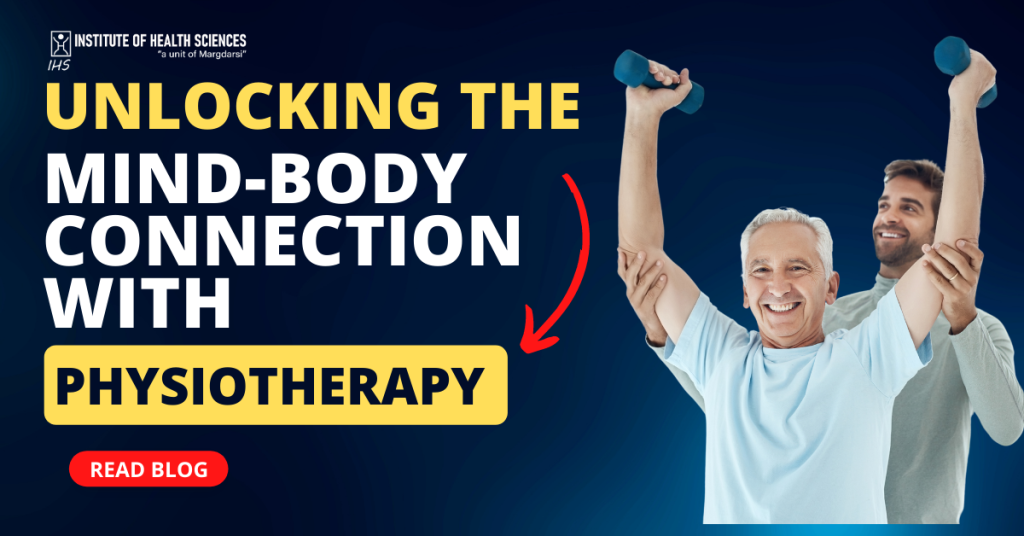Physiotherapy is a form of physical rehabilitation that has been used to help people with various physical ailments and injuries and BPT course is a degree which creates skilled Physiotherapist.
In recent years, however, its use has been extended to benefit mental health.
Mental health is an essential aspect of overall well-being and physical health and it is often overlooked.
Physiotherapy can help people with mental health issues by relieving stress, anxiety, depression, and other mental health disorders.
It can also provide a sense of control and empowerment for those struggling with mental health issues.
Physiotherapy can help individuals to gain greater insight into their emotions and encourage them to take positive steps toward improving their mental health.
Physiotherapy is a good career choice at the same time prestigious job when you peruse in top physiotherapy colleges in India.
If you want to do something for people struggling with physical ailments or mental health this article is for you.
Physiotherapy as a Stress Reducer
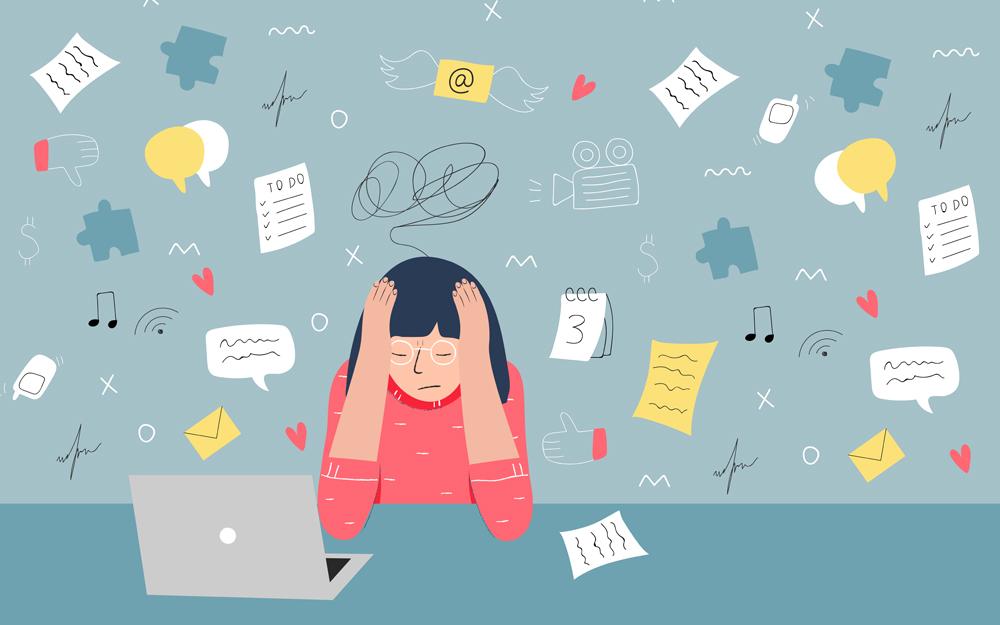
Physiotherapy can be an effective way to reduce stress and improve overall well-being.
This is done by focusing on physical activity, relaxation, and improving posture.
Physical activity can help to reduce stress by providing a healthy outlet for releasing tension.
This can be done through a range of activities such as stretching, and light exercise.
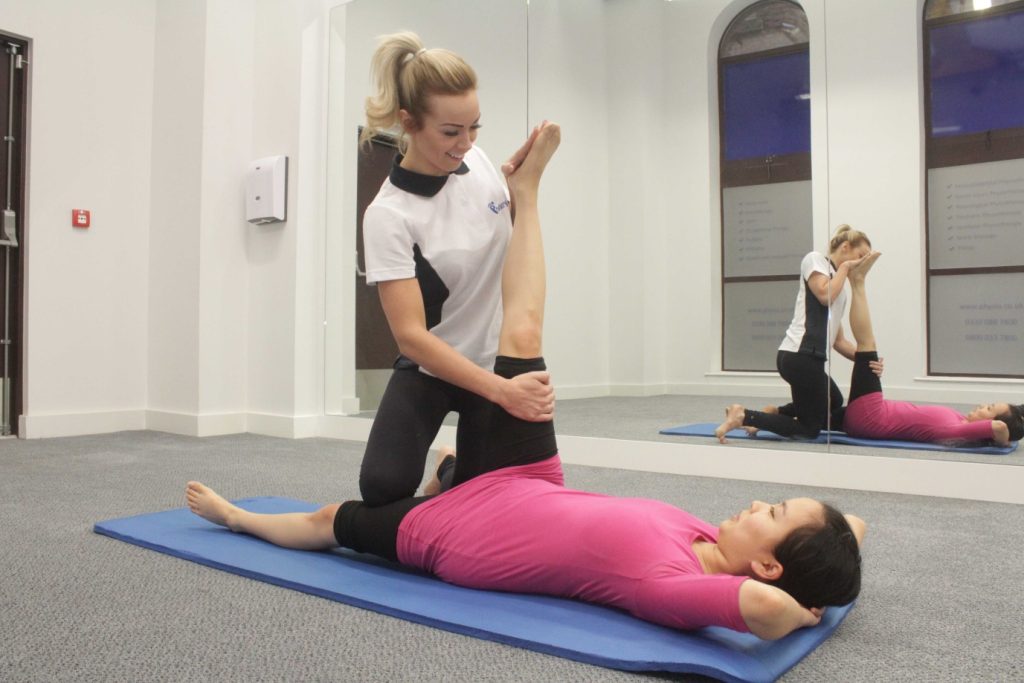
Relaxation techniques can also help to reduce stress, such as deep breathing, guided imagery, and progressive muscle relaxation.
Improving posture can help to reduce stress by allowing the body to move more freely and with less effort.
Physiotherapy can also help to teach effective stress management through lifestyle changes, such as setting boundaries and learning effective time management.
Managing Symptoms of Depression
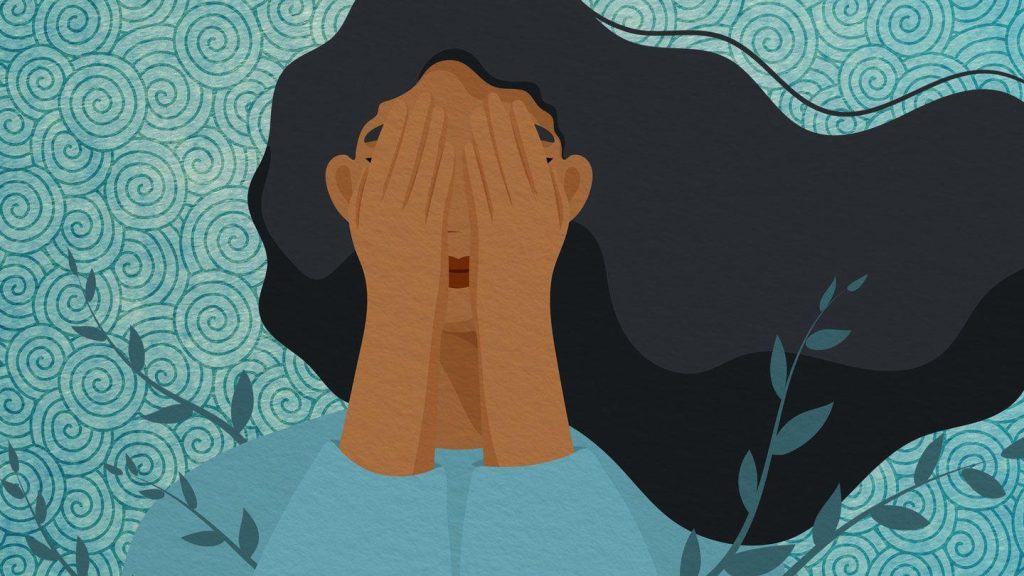
Physiotherapy can be used to help manage symptoms of depression.
By combining physical activities, such as exercise, with psychological techniques, such as cognitive behavioral therapy, physiotherapists can help to reduce feelings of depression.
Exercise can help to improve mood and reduce stress, while cognitive behavioral therapy can help to identify and challenge negative thought patterns that contribute to depression.
Physiotherapists can also help to improve sleep quality, which can help reduce symptoms of depression.
Other treatments, such as massage and relaxation techniques, can also help to reduce stress and boost mood.
Physiotherapy and Increased Self-Confidence

Physiotherapy can help to improve self-confidence in a variety of ways.
Physiotherapy can help to improve physical strength, flexibility, and balance, all of which can boost self-confidence.
Physiotherapy can also help to improve posture and body image, which can have a significant impact on self-confidence.
Finally, physiotherapy can provide guidance and advice on how to improve physical and mental health, which can lead to improvements in self-confidence.
Using Physiotherapy to Improve Cognitive Function
Physiotherapy is an important part of rehabilitation for people with cognitive impairments, such as those suffering from Alzheimer’s disease, dementia, or stroke. It can help to improve physical and mental functioning, as well as reduce stress and anxiety.
Physiotherapists use a variety of techniques to help improve cognitive function, such as:
- Exercise
- Manual therapy
- Cognitive-behavioral therapy
- Education and lifestyle changes
- Music therapy
The Role of Physiotherapy in Mental Trauma Recovery
Physiotherapy can play a key role in the recovery process for people who have suffered mental trauma.
It can help them to improve their physical health and functioning, as well as their mental well-being.
Physiotherapists use a range of techniques to help people to improve their physical functioning, reduce pain and stiffness, and improve their posture and strength.
These techniques can help to reduce physical symptoms associated with mental trauma, such as fatigue, insomnia, and muscle tension.
Physiotherapists are also trained to provide psychological support, which can help people to manage their emotions and thoughts, and cope with any physical symptoms they may experience.
Additionally, physiotherapy may involve teaching people relaxation techniques, which can help to reduce stress and anxiety.
Read more: Admissions Open For BSALP Course 2022 For 12th Pass Out
Physiotherapy and the Management of PTSD
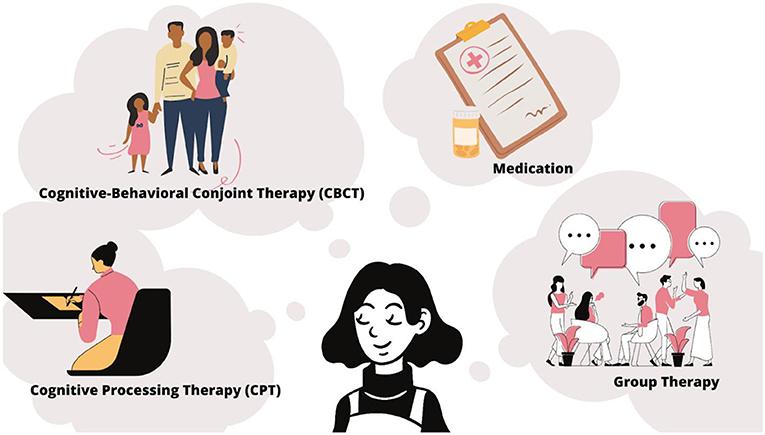
Physiotherapy can provide techniques for relief from the symptoms of PTSD by teaching relaxation techniques, such as deep breathing and mindfulness.
These techniques can help to reduce stress and anxiety, which can have a positive impact on mood and overall well-being.
Physiotherapy can also help to reduce physical symptoms of PTSD, such as muscle tension and headaches, by using such as massage and stretching.
It can also help to improve cognitive functioning, which can be impaired due to the effects of PTSD.
Cognitive behavioral therapy (CBT) is a psychotherapy method that can help to reduce negative thoughts and behaviors associated with PTSD and can help to improve overall functioning.
Finally, physiotherapy can help to improve physical activity levels, which can help to reduce feelings of depression, anxiety, and fatigue.
Exercise can help to improve overall physical and mental well-being as well as provide a sense of accomplishment.
How do Physiotherapists improve Mental health?
Physiotherapists can help improve mental well-being in a number of ways.
They can assess and help improve physical health and mobility, which can in turn improve mental health.
Physiotherapists are also trained to provide advice on lifestyle and exercise, which can help improve mood and reduce stress.
They can provide physical activity programs tailored to individual needs and abilities, as well as provide strategies to help cope with anxiety, depression, and other mental health issues.
Physiotherapists can also work with other healthcare professionals to coordinate an overall care plan for those with mental health issues.
Role Of Physiotherapy In Mental Health
Physiotherapy is a healthcare profession that helps to restore movement and function to those with physical impairments or disabilities.
While it is commonly associated with physical health, physiotherapy can also have significant benefits for mental health.
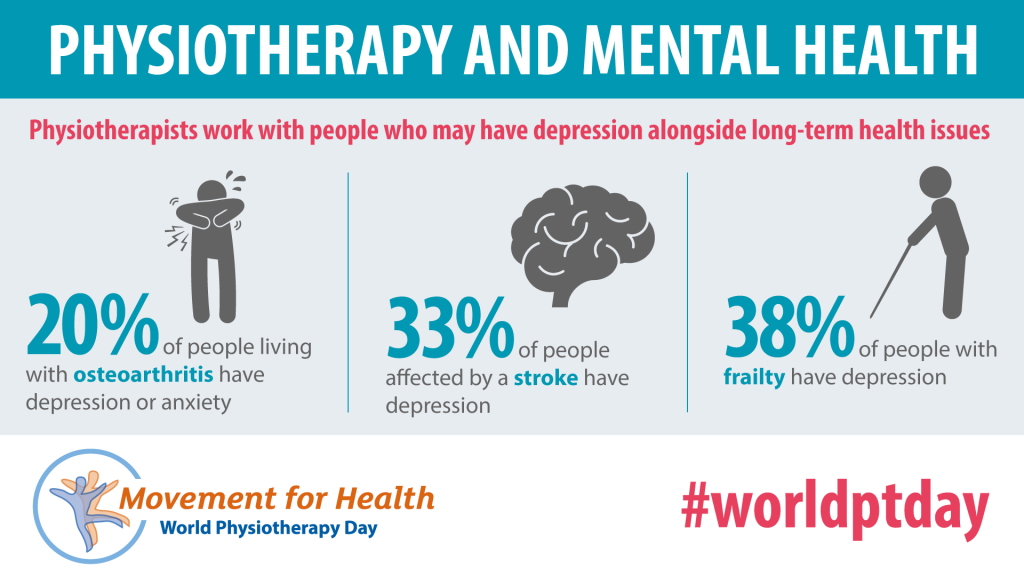
Research has shown that physical activity and exercise can have a positive impact on mental health, and physiotherapy is no exception.
By improving physical function and reducing pain, physiotherapy can help individuals feel more confident and motivated to engage in physical activity.
This, in turn, can lead to improved mood, reduced stress, and increased feelings of well-being.
Physiotherapy can also provide a safe and supportive environment for individuals to address underlying emotional or psychological issues that may be contributing to their physical condition.
Physiotherapists trained in mental health may use techniques such as relaxation training, mindfulness, and cognitive-behavioral therapy to help individuals manage symptoms of anxiety, depression, and other mental health concerns.
Furthermore, physiotherapy can be an effective treatment for conditions that have both physical and mental components, such as chronic pain, fibromyalgia, and traumatic injuries.
By addressing both the physical and mental aspects of these conditions, physiotherapy can lead to improved outcomes and a better quality of life for individuals living with these conditions.
In summary, physiotherapy can have significant benefits for mental health by improving physical function, reducing pain, providing a safe and supportive environment for emotional healing, and addressing conditions with both physical and mental components.
How you can unlock mind-body connection after BPT Course?
It is an exploration of the transformative power of physiotherapy in improving both physical and mental health. BPT (Bachelor of Physiotherapy) is a four-year undergraduate degree program that provides students with a comprehensive understanding of the human body and how it functions.
Through this course, students learn how to assess and treat various physical conditions, including musculoskeletal injuries, neurological disorders, and respiratory diseases.
But BPT course also goes beyond just treating the physical body. It emphasizes the importance of the mind-body connection and how our mental and emotional well-being can impact our physical health. You can check about physiotherapy entrance exam 2023 Odisha for physiotherapy admission.
This connection between the mind and body is often overlooked in traditional medical treatments, but BPT course acknowledges the important role that mental health plays in the overall wellness of an individual.
Physiotherapists trained in BPT course can use a variety of techniques to address both physical and mental health concerns, including stress reduction, relaxation techniques, and exercise therapy.
By unlocking the mind-body connection, BPT course empowers physiotherapists to provide holistic care that addresses the needs of the whole person.
This comprehensive approach can lead to improved outcomes for patients, including reduced pain, improved function, and a greater sense of well-being.
Become a certified Physiotherapist at IHS with BPT course
The Institute of Health Sciences, Bhubaneswar is a premier institute for rehabilitation sciences offering BPT course and BASLP course.
The state-of-the-art infrastructure and experienced faculties of this top physiotherapy colleges in Bhubaneswar shall make you an expert in this field.
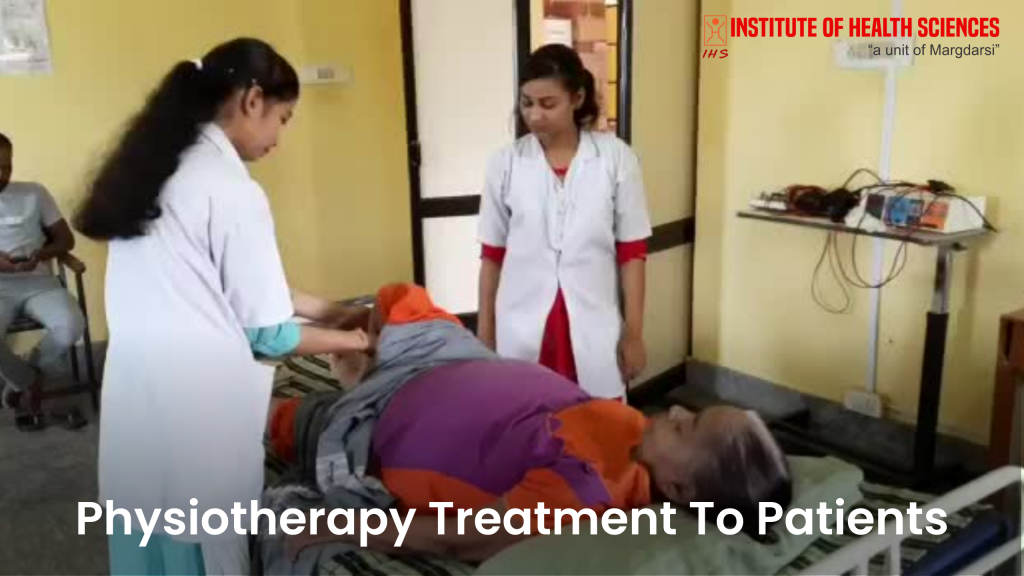
This NAAC accredited college is confident that you will find the BPT course to be very rewarding and will be able to advance your Lucrative Future Career In 2023 and knowledge in the field of physiotherapy.
Read more: BPT Course Mastery: Everything You Need to Know
Physiotherapy Course Fees In Odisha
The course fees for physiotherapy programs in Odisha can vary depending on the institution and the level of the course (undergraduate or postgraduate).
Here is fee structure of IHS Bhubaneswar:
- 8 lakhs for 4 years & 6 months including hostel and accommodation
- 5 lakhs without hostel & accommodation
Thank you for taking the time to learn more about this exciting field of study physiotherapy.
Check out how IHS has celebrated Autism Awareness
Best Physiotherapy Colleges In India
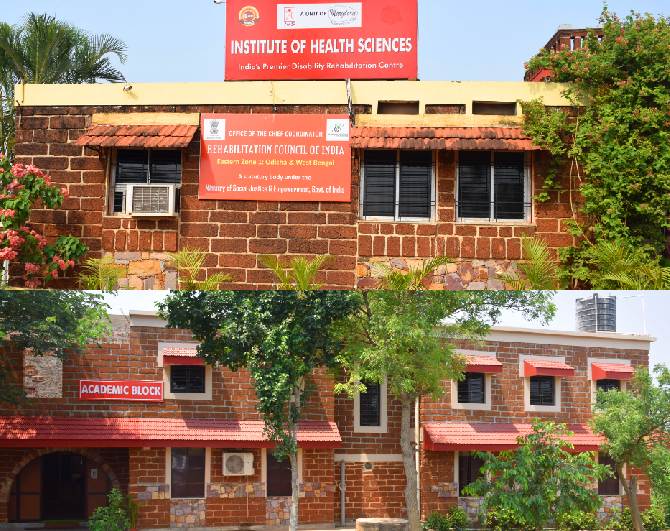
The Institute of Health Sciences (IHS) in Bhubaneswar, Odisha is a well-known physiotherapy college in India, offering undergraduate and postgraduate programs in physiotherapy.
This college has a strong reputation for academic excellence, research, and clinical training. However, the final choice of college should be based on individual preferences, such as location, course specialization, and fee structure.
This institute has Academic Calendar (Excel), Faculties Development (To help faculties and professors continuously evolving in their domain) and Student Welfare.
If you wish to enroll, simply visit our website www.ihs.ac.in
Check out Its news and events.
Thank you.
[saswp_tiny_multiple_faq headline-0=”h2″ question-0=”What are the benefits of physiotherapy on mental health?” answer-0=”Physiotherapy can help improve mental health by reducing stress, anxiety, and depression. It can also help to improve self-esteem and self-confidence by increasing physical activity and providing a sense of accomplishment. ” image-0=”” count=”1″ html=”true”]
[saswp_tiny_multiple_faq headline-0=”h2″ question-0=”How does physiotherapy help emotionally?” answer-0=”Physiotherapy can help to improve mental health and emotional wellbeing by providing a safe space for clients to talk through their feelings, reducing stress and anxiety, and helping to build a sense of control and self-efficacy.” image-0=”” headline-1=”h2″ question-1=”What is physiotherapy and its benefits?” answer-1=”Physiotherapy is a type of treatment that uses physical approaches such as massage, exercise, and manipulation to help people manage pain, increase mobility, and improve physical function. Its benefits include reducing pain, improving range of motion, and increasing strength and endurance. ” image-1=”” headline-2=”h2″ question-2=”What is the mind-body connection with physical health?” answer-2=”The mind-body connection refers to the interplay between the thoughts, emotions, and physical sensations that occur within our bodies. Our thoughts and emotions can have a significant impact on our physical health, as stress, anxiety, and negative emotions can lead to physical symptoms and illnesses” image-2=”” headline-3=”h2″ question-3=”What are 3 activities that involve the mind-body connection?” answer-3=”Here are three activities that involve the mind-body connection: Yoga: This ancient practice involves physical postures, breathing techniques, and meditation to promote mind-body awareness and reduce stress. Tai chi: This gentle martial art combines slow, flowing movements with deep breathing and meditation to improve balance, flexibility, and overall well-being. Meditation: This practice involves focusing the mind on a particular object or thought, with the goal of achieving a state of calmness and relaxation.” image-3=”” headline-4=”h2″ question-4=”How do I regain my mind-body connection?” answer-4=”o regain your mind-body connection, try the following: Practice mindfulness: This involves paying attention to the present moment, without judgment or distraction, and can help you become more aware of your thoughts and emotions. Engage in physical activity: Exercise can help you reconnect with your body, improve your mood, and reduce stress. Seek professional help: A therapist or counselor can help you explore and address any emotional or psychological barriers that may be interfering with your mind-body connection.” image-4=”” headline-5=”h2″ question-5=”What is mind-body connection technique?” answer-5=”Mind-body connection techniques are practices that help individuals cultivate greater awareness and connection between their thoughts, emotions, and physical sensations. These may include: Biofeedback: A technique that uses electronic monitoring to help individuals become more aware of their physiological responses to stress and learn to control them. Breathwork: A practice that involves consciously controlling the breath to calm the mind and reduce stress. Body scan meditation: A mindfulness practice that involves systematically scanning the body from head to toe, noticing any physical sensations or areas of tension. Visualization: A technique that involves creating mental images to promote relaxation, reduce stress, and enhance overall well-being.” image-5=”” count=”6″ html=”true”]
